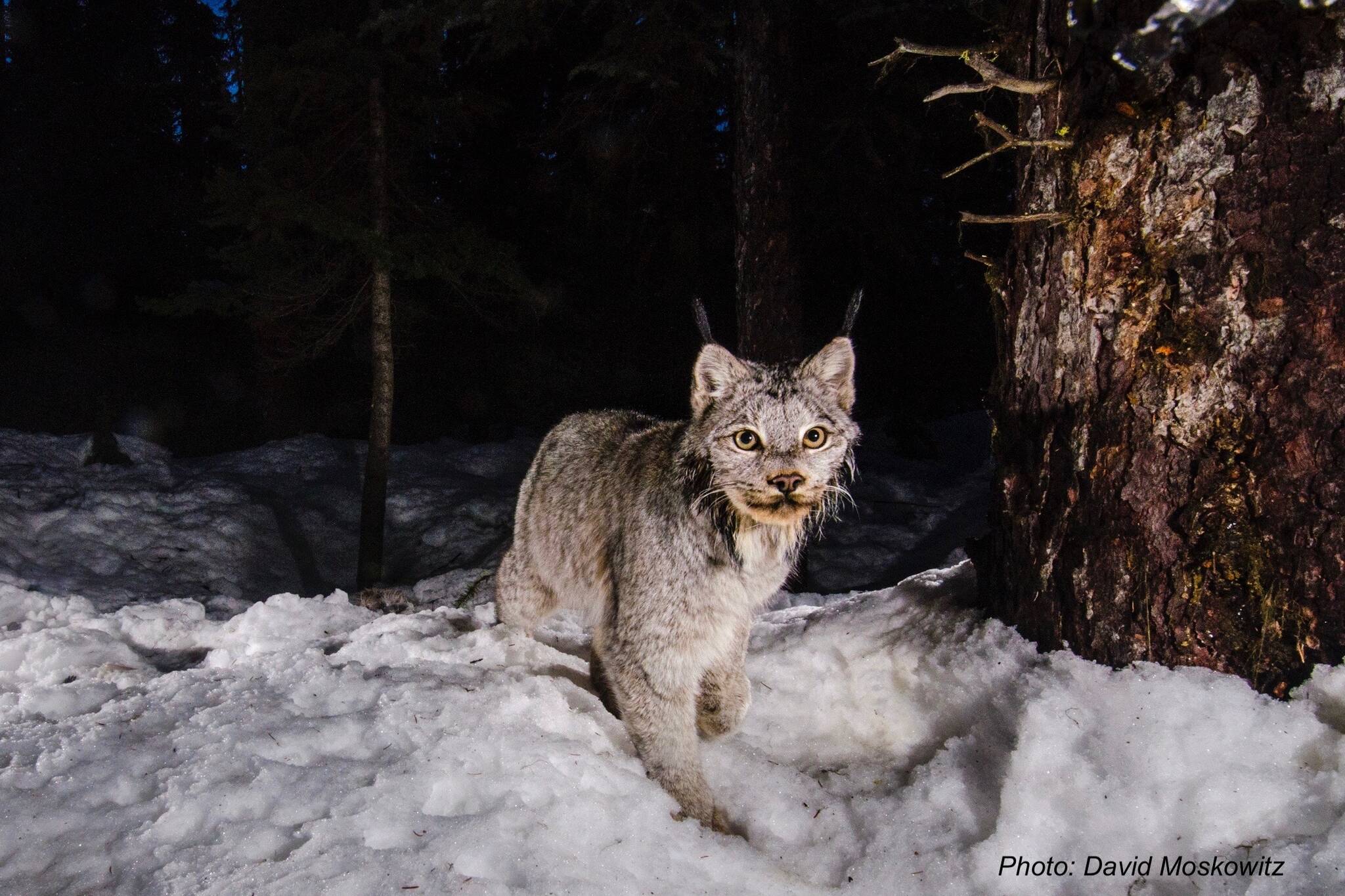A new partnership between Home Range Wildlife Research and Paul G. Allen Family Foundation will allow for research on Canada lynx and the effects of wildfires on their habitat in the North Cascades.
Fewer than 50 Canada lynx populate high-elevation forests in the North Cascades, according to the Washington Department of Fish and Wildlife. The department reports that the most significant threats to lynx are small population size; habitat loss and fragmentation from large wildfires; and climate change.
“Vast swaths of Washington state’s lynx habitat have burned in increasing wildfires over the past two decades. If wildfires continue at this rate and intensity, lynx are in danger of local extinction,” said Carmen Vanbianchi, research director and co-founder of Home Range Wildlife Research.
The state of Washington lists Canada lynx as endangered, but conservation efforts have stalled because biologists know little about how lynx use burned forests.
Home Range Wildlife Research, a nonprofit that conducts independent and collaborative wildlife research, will fill this knowledge gap by conducting a field study where they outfit lynx with GPS collars to record what burned habitats they do or do not use.
Since its inception over a year ago, Home Range has been working toward a large-scope interdisciplinary project aimed at providing important information for the conservation of Canada lynx.
Last winter, Home Range conducted a pilot project surveying for lynx tracks in the 2006 Tripod Burn, which was one of the largest wildfires in Washington history at the time. According to Home Range, six years ago, track surveys in this area indicated that there hadn’t been enough growth to provide a habitat for lynx. This past winter, over five days of field surveys, Home Range marked 57 sets of tracks, which suggest a significantly higher level of lynx activity.
Understanding how lynx respond to wildfires requires years of live-trapping and GPS collaring lynx, backtracking lynx in the snow to record details of the habitat they use, and setting up large trail camera arrays.
“This research is urgently needed to learn more about their behavior and how we can ensure lynx have a presence in the North Cascades for generations to come,” said Vanbianchi.
Home Range will begin their lynx research this winter, with Paul G. Allen Family Foundation awarding them their first three years of research. Collaborators include lynx experts, wildfire ecologists, agency partners in the U.S. Forest Service and the Washington Department of Fish and Wildlife, and the University of British Columbia.
Talk to us
Please share your story tips by emailing editor@kentreporter.com.
To share your opinion for publication, submit a letter through our website https://www.kentreporter.com/submit-letter/. Include your name, address and daytime phone number. (We’ll only publish your name and hometown.) Please keep letters to 300 words or less.


